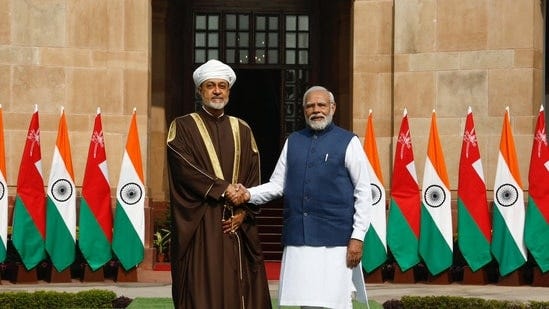Hey buddy, Glad to see you here! Welcome to Monday, 18th December 2023’s Matters that Matter. Happy Reading!
1. Aadhaar-based consent for children to go online
Using an Aadhaar-based system to verify children's age for using online services and gather their parents' consent, introducing a two-stage notification measure for tech companies to inform users about data breaches are some of the key proposals in the upcoming data protection rules.
The Union Ministry of Electronics and IT (Meity) is set to kickstart consultations on data protection rules, starting Dec 19, as it looks to operationalize the Digital Personal Data Protection Act, which was notified over four months ago in August. At least 25 rules have to be formulated to operationalize the Act notified in August. The government has also been empowered to enact regulations for any provision it deems fit.
Platform access for under 18 years olds
One of them is developing a consent framework to verify a child's age before they can use an online service. The Act states that companies must gather "verifiable parental consent" to let anyone under 18 years old access their platform. This has been a major sticking point for the industry since the Act itself does not suggest how platforms can perform age-gating.
The rules are expected to recommend two methods. One is to use parents' DigiLocker app based on their Aadhaar details, and the other is for the industry to create an electronic token system, which will be allowed only if the government authorizes it. Under the first, parents will be allowed to add their kids' Aadhaar details to the DigiLocker platform, and platforms will be able to ping the app to verify whether a person accessing their site is indeed a child. This would be Aadhaar-based authentication. The internet platforms will not know the Aadhaar details of the users. It is a simple yes/no response from the Aadhaar database on a user's age, as simple as that.
Some entities, including healthcare and educational institutions, can be exempt from obtaining verifiable parental consent and age-gating requirements. It is also understood that some entities can be exempted from the norms on a restricted basis, depending on the specific purpose for which they need to process a child's data. For instance, a transport company can process a child's data without age-gating to offer them transport services. But nothing beyond that. Similarly, the government can process a child's data for the limited purpose of offering them welfare services.
Data Breach
The rules are also expected to propose that entities notify users about a data breach as soon as they become aware of it as part of a two-stage notification process. In the first step, they will be required to alert users about the nature and quantum of the breach, among other things. In the second stage, they must notify users within 72 hours about any additional details related to the breach. Under the Data Protection Act, the penalty for not being able to take enough safeguards to prevent a data breach could go as high as Rs 250 crore.
Another key proposal of the rules will be to require government institutions to issue a notice to citizens whenever they are using their personal data to offer welfare services and subsidies or other similar activities.
2. Sultan of Oman arrived in Delhi on a state visit
On Saturday, PM Narendra Modi and Oman's Sultan Haitham bin Tarik adopted a vision document to strengthen bilateral ties and also pushed for sealing a comprehensive economic partnership agreement.
They also discussed the situation arising out of the Hamas-Israel war.
The two sides also announced the third tranche of the Oman-India investment fund worth USD 300 million (around Rs 2,500 crore) that would channel investment into the fastest-growing sectors of the Indian economy.
India and Oman also signed agreements on cooperation in the field of information technology, combating financial crimes, culture, and the establishment of a Hindi chair of the Indian Council of Cultural Relations in Oman.
There was also a discussion on the possibility of Oman utilizing India's digital payment system UPI with a corresponding Omani platform, besides exchanging views on trade in Rupee.
After the bilateral talks, Modi said: "Today is a historic day in India-Oman relations as the Sultan of Oman is on a state visit to India after 26 years... based on our successful engagements, we are creating a path of bright future today.
The India-Oman vision document, which focuses on building a partnership in 8 to 10 areas, is broadly rooted in Oman's 'Vision 2040', its national development blueprint, and India's development vision of 'Amritkaal'.
3. Kerala report new Covid variant
A case of JN.1, a sub-variant of COVID-19 that's currently spreading in the US and China, has been found in Kerala as part of the ongoing routine surveillance by INSACOG (Indian SARS-CoV-2 Genomics Consortium).
Context
The case was detected in an RT-PCR-positive sample from Karakulam, Kerala, on December 8. The patient had mild symptoms of influenza-like illness (ILI) and has since recovered.
The Union Health Ministry is in touch with the state health authorities and monitoring the situation at points of entry. Amock drill is being held at all health facilities across various states through district collectors as part of a regular exercise to assess their public health and hospital preparedness measures.
There has been an increasing trend of Covid-19 cases in Kerala over the last few weeks. This has been attributed to an increase in the number of samples from ILI cases being referred for testing. A majority of these cases are clinically mild and recovering on their own at home.
Although the number of COVID-19 cases has generally remained low worldwide this year, a marginal increase has been noted in early December. The subvariant, however, is not entirely new and has been detected in small numbers in many countries for several months now.
What do we know?
The sub-variant JN.1 is a close relative of the BA.2.86 variant, commonly called Pirola. It carries just one additional mutation in the spike protein as compared to its relative. Pirola was on the watchlist of scientists as a "variant of interest" because of more than 39 mutations it carried on the spike protein compared to its predecessor. Mutations on the spike protein of Sars-CoV-2 are important because they are the ones that attach to receptors on human cells and allow the virus to enter it.
Can this variant lead to a spike in cases?
There were concerns that Pirola might be able to evade immunity and spread more quickly and effectively. However, that hasn't happened. The US Centers for Disease Control and Prevention (CDC) says - the updated vaccines available in the country have demonstrated the ability to block Pirola infections effectively and should, therefore, protect against JN.1 as well.
- References and Excerpts from The Indian Express
If you read till the end, I am so proud of you for being a responsible and informed citizen of the world! Don’t forget to pass the baton to your friends by sharing this article.
Your suggestions are invaluable and would help Matters that Matter to improve and deliver to the community better. So, feel free to reach out!
Until then, sending lots of best wishes and love <3






